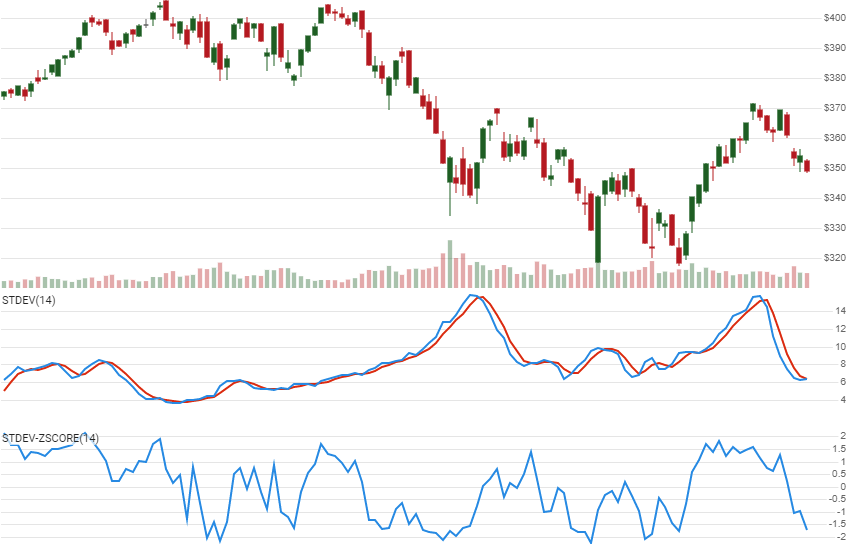Standard Deviation (volatility)
Standard Deviation of price over a rolling lookback window. Also known as Historical Volatility (HV). Z-Score is also returned. [Discuss] 💬

// C# usage syntax
IEnumerable<StdDevResult> results =
quotes.GetStdDev(lookbackPeriods);
// usage with optional SMA of SD (shown above)
IEnumerable<StdDevResult> results =
quotes.GetStdDev(lookbackPeriods, smaPeriods);
Parameters
lookbackPeriods int - Number of periods (N) in the lookback period. Must be greater than 1 to calculate; however we suggest a larger period for statistically appropriate sample size.
smaPeriods int - Optional. Number of periods in the moving average of StdDev. Must be greater than 0, if specified.
Historical quotes requirements
You must have at least N periods of quotes to cover the warmup periods.
quotes is a collection of generic TQuote historical price quotes. It should have a consistent frequency (day, hour, minute, etc). See the Guide for more information.
Response
IEnumerable<StdDevResult>
- This method returns a time series of all available indicator values for the
quotesprovided. - It always returns the same number of elements as there are in the historical quotes.
- It does not return a single incremental indicator value.
- The first
N-1periods will havenullvalues since there’s not enough data to calculate.
StdDevResult
Date DateTime - Date from evaluated TQuote
StdDev double - Standard Deviation of price
Mean double - Mean value of price
ZScore double - Z-Score of current price (number of standard deviations from mean)
StdDevSma double - Moving average (SMA) of StdDev based on smaPeriods periods, if specified
Utilities
See Utilities and helpers for more information.
Chaining
This indicator may be generated from any chain-enabled indicator or method.
// example
var results = quotes
.Use(CandlePart.HL2)
.GetStdDev(..);
Results can be further processed on StdDev with additional chain-enabled indicators.
// example
var results = quotes
.GetStdDev(..)
.GetSlope(..);